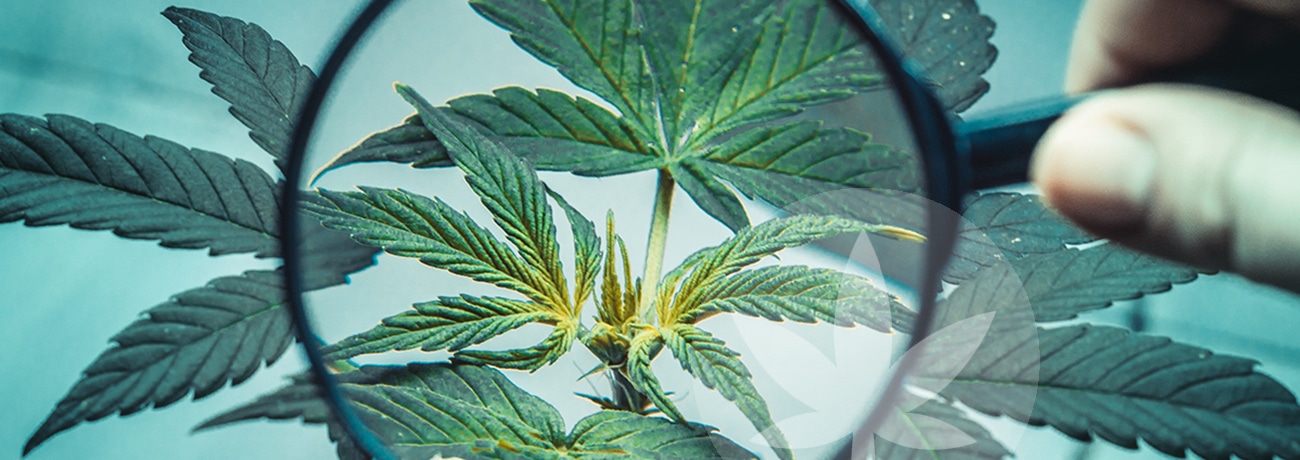Cannabis is an extremely complex plant that contains hundreds of chemical substances. Over 100 of these chemical substances are known as cannabinoids. Cannabinoids are an incredibly important part of the cannabis plant, as they are the unique chemical compounds secreted by the flower that provides the different physical and mental effects we feel when we use cannabis.
The two most common types of cannabinoids, and the ones we will focus on here, are THC and CBD. Depending on how cannabis products are made, they can have a range of potencies of THC and CBD. Most cannabis products come from, or can be made, using the flowers and leaves of the cannabis plant. Now that we’ve covered some of the basics of cannabis, let’s dig a little deeper into the two most popular cannabinoids.
THC
One of the most researched cannabinoids present in the cannabis plant is delta-9-tetrahydrocannabinol (THC). When you use a cannabis product, either through inhalation or ingestion, THC is the cannabinoid that is responsible for the way your brain and body respond to cannabis. In other words, THC is the psychoactive compound that causes the cannabis “high” or intoxication, which is what the cannabis plant is so well known for. THC has some therapeutic effects, but it also has harmful effects, which generally increase when the strength of THC is higher.
Live cannabis plants contain a cannabinoid acid called tetrahydrocannabinolic acid (THCA), which is the non-active version of THC. When cannabis is decarboxylated through heating to a high temperature (drying or curing), the acid molecule (the “A” in THCA) drops off, and the THC is activated. This results in the effects we associate with consuming THC. It also means that cannabis in its fresh form is not yet active with THC. Cannabis strains that contain very low amounts of THC in the flowers and leaves (less than 0.3%) are classified as hemp.
CBD
Cannabidiol (CBD) is another cannabinoid that is quickly gaining popularity in the cannabis industry and beyond. Unlike THC, CBD does not produce a high or intoxication. Furthermore, there is some evidence that CBD may block or lower some of the effects of THC on the mind. This may occur when the amount of CBD in the cannabis is the same or higher than the amount of THC.
CBD may not get you high, but that doesn’t mean it’s completely undetectable in your body. Depending on the dose, your unique biology, and how you consume it, CBD can have a range of subtle effects, including physical relaxation, stress relief, or a slightly alerting or sedating effect. CBD is also being studied for its possible therapeutic uses such as pain management, insomnia, anxiety, cancer, and other medical conditions.
How Do Cannabinoids Work
To get an idea of how cannabinoids work, we first need to mention how the human body is designed. The human body is equipped with something called the endocannabinoid system (ECS). The ECS is made up of two parts:
- Cannabinoid receptors – these are present in nearly every region of the body’s central nervous system and brain, as well as other areas of the body, including the immune system.
- Endocannabinoids – these are cannabinoids that are naturally produced by the body.
Your natural endocannabinoids fit into your cannabinoid receptors like a key in a lock, and help carry messages from cell to cell. THC works the same way, and temporarily replaces your own natural endocannabinoids. It binds with your cannabinoid receptors but causes different effects. These effects may include:
- the release of dopamine, resulting in feelings of relaxation;
- a physical response, such as reduced inflammation or an increase in hunger; and
- effects on various regions of the brain, including the hippocampus (memory), the frontal cortex (thinking and decision-making) and the cerebellum (physical movement and coordination).
CBD works a little differently than THC. Research to understand how CBD works is ongoing, but the studies conducted so far suggest that rather than binding to the cannabinoid receptors in the human endocannabinoid system, the way THC does, CBD works to increase or improve the production of our own natural endocannabinoids. Research also shows that CBD inhibits the production of an enzyme in our body that regulates and destroys our own excess endocannabinoids. This leads to us having more of our own endocannabinoids circulating in our bodies, which affects our physical state.
Some studies show that CBD, in combination with THC, appears to reduce some of the psychoactive effects of THC. Therefore, selecting a product with similar levels of CBD and THC may help curb the overwhelming or unwanted effects (such as anxiety or paranoia) that are often associated with consuming high amounts of THC.
Much more scientific research is required before the effects of cannabinoids, such as THC and CBD, as well as all of the other compounds in cannabis plants are truly understood. In the meantime, it’s important for you to stay educated on the effects of cannabis use, choose products wisely, and read cannabis product labels carefully before using them.
How we can help you
At Cannabis License Experts, we provide you with the guidance to plan your cannabis business, acquire funding, navigate the legal requirements, and acquire the appropriate licence for your operations. As the Canadian cannabis industry develops, more and more licensed producers will be needed to meet the demands of consumers.
Cannabis License Experts offers support from day one of starting your cannabis business, including strategic planning, floor plan preparation, site audits, SOPs, Preventive Control Plans (PCPs) and more.
Our Edibles Compliance division can provide you with a solid plan for your edibles business to help get your products on store shelves.
Contact us today to discover how we can license and legalize your cannabis business to meet federal or provincial regulations.
Resources
https://www.canada.ca/en/health-canada/services/drugs-medication/cannabis/about.html
https://ocs.ca/blogs/cannabis-anatomy/what-is-thc


